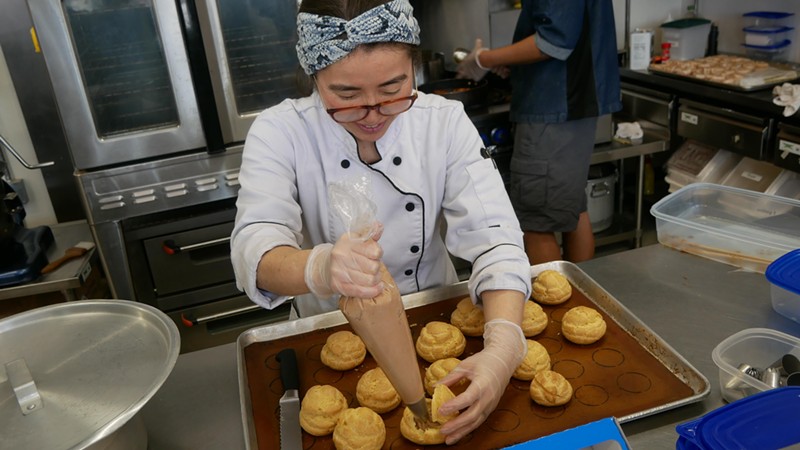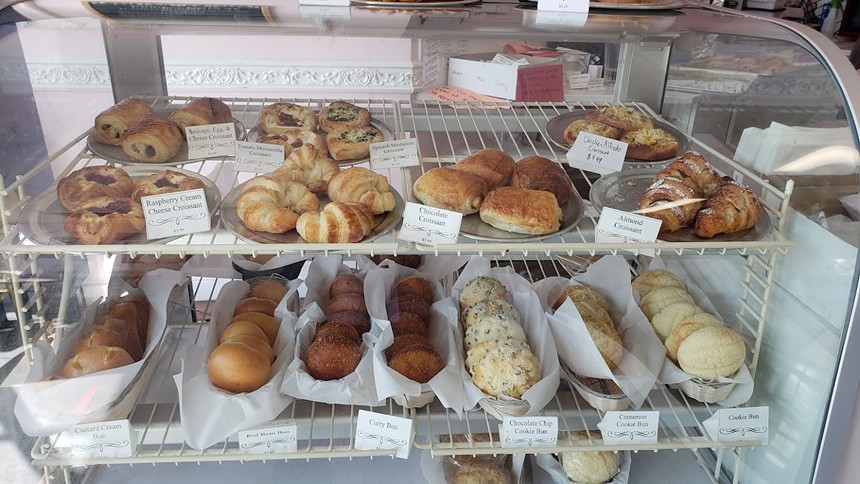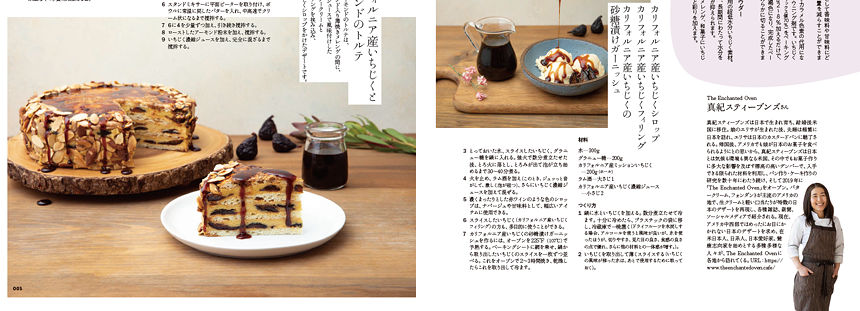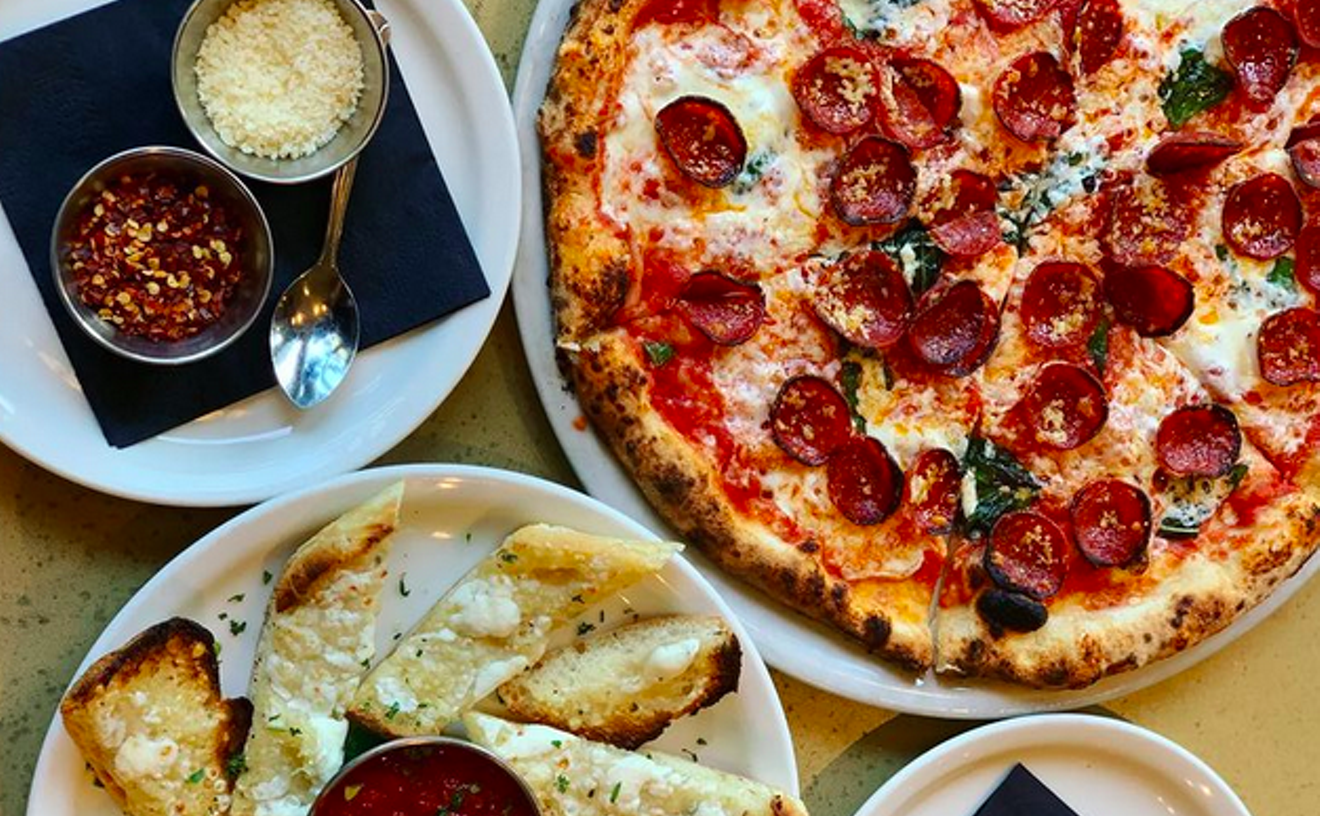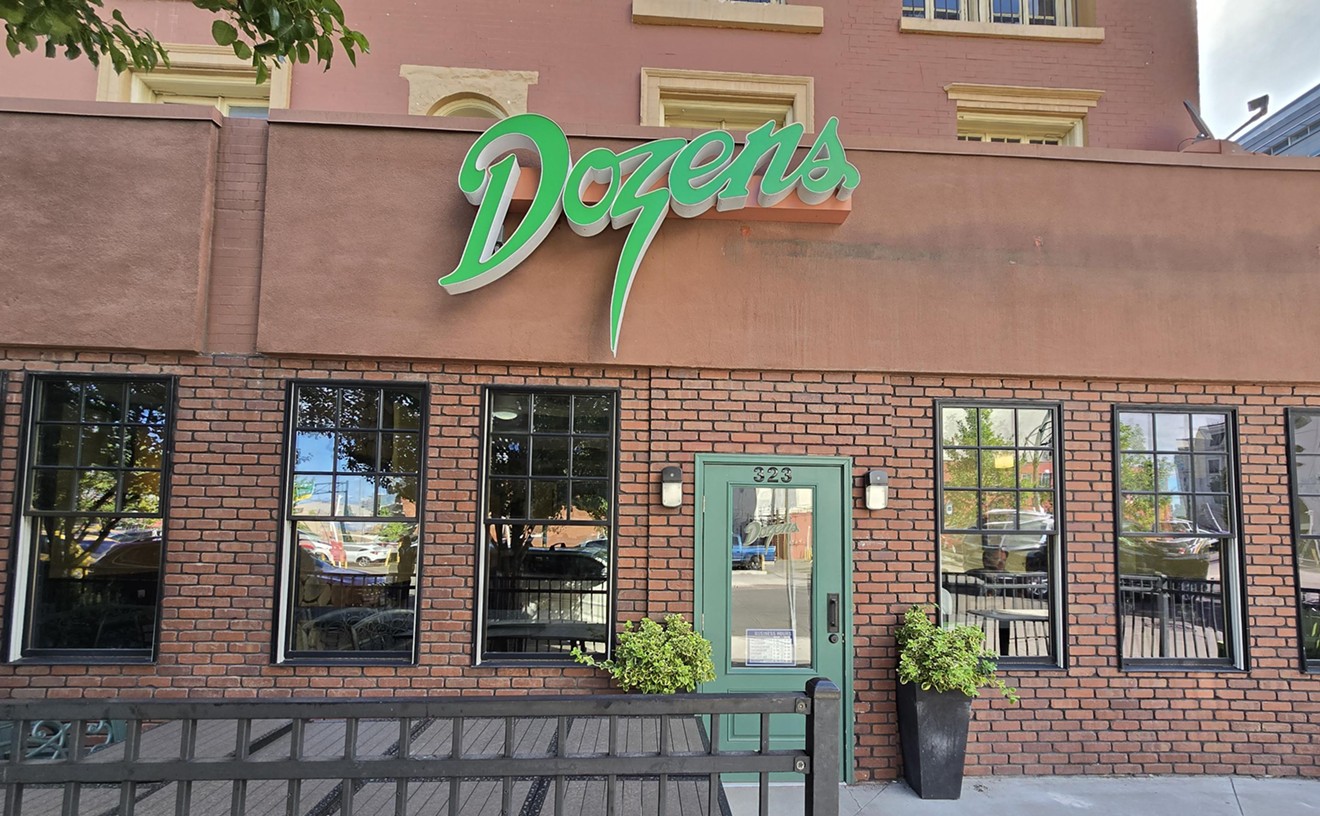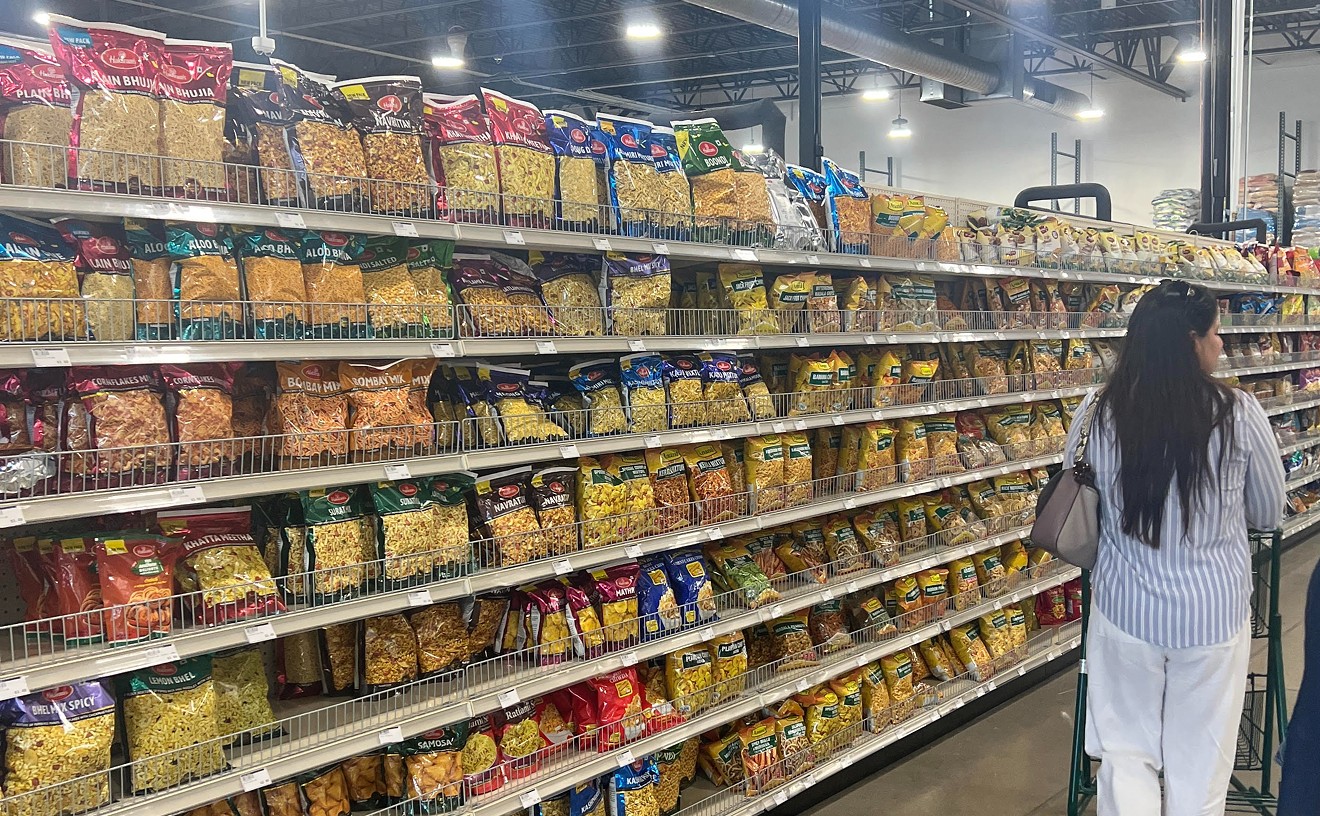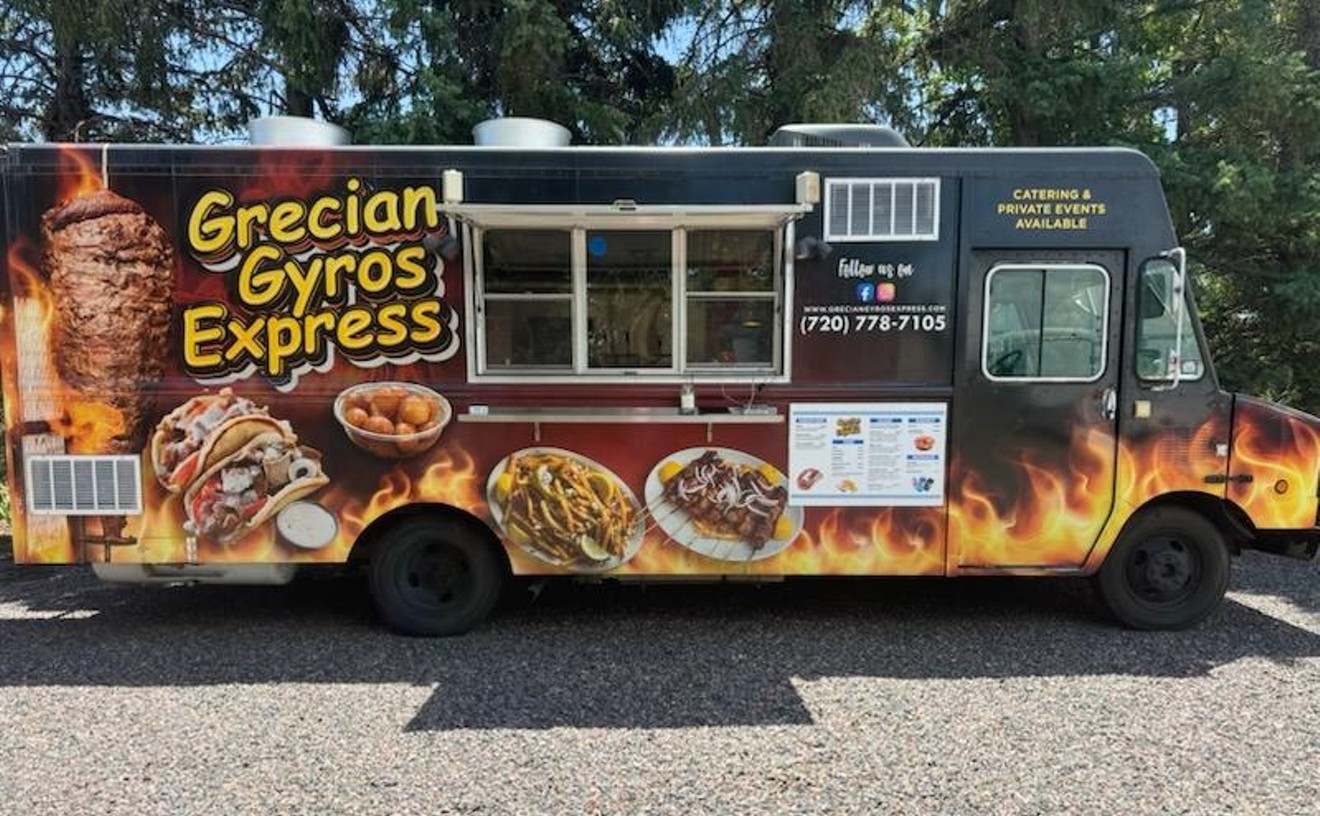Maki Stephens, a small, energetic woman who’s almost always smiling, runs the Enchanted Oven, a Japanese bakery in Broomfield located next to FlatIron Crossing mall. She has a cadre of loyal customers, but most Denverites probably don’t know about her shop. As of this spring, though, there are bakers in Japan who know who she is.
Stephens didn’t start her bakery to achieve fame and fortune. Her entire career has been a series of happy accidents and fortuitous timing. When she was in college in Japan, she met an American exchange student from Colorado who worked as a translator. When Stephens visited that friend, she fell in love with Colorado and eventually got married and had a daughter, Elissa, here. She also followed her friend into a career in translation, because Japanese companies were doing more business in Denver in the 1990s, and Americans were becoming more interested in Japan and Japanese culture in general.
“It was really timely. Now, becoming a translator, I think it might be harder because there are so many. I see a lot of bad translations, and they probably get it cheap," Stephens notes. With the rise of AI and translation software, text can be converted easily — but not necessarily well. Thirty years ago, translating Japanese into English and vice-versa was time-consuming, brain-straining work.
Starting as a freelancer for hire, Stephens made a meager $6,000 the first year, but as she built a good reputation, she was soon making $30,000. “Okay, okay, I thought maybe I can call myself a full-time translator,” she recalls.
She was able to travel to Japan for translation clients, taking Elissa, or “E-chan,” (pronounced “Eh-chan” — “chan” is a suffix for child) with her. That’s where her daughter fell in love with cream pan, custard-filled Japanese pastries that her grandmother would buy for her.
Back in Denver, Stephens tried to make her daughter's favorite snack, but she wasn’t a baker. With dogged determination, she tested various recipes and began adjusting ingredients for baking at high altitude and eventually got the cream pans just right. She also made cakes for friends and posted photos of her goodies online. Thanks to referrals and social media, she began to get requests — and get paid. At the time, Stephens had stopped the translation business and was coaching and choreographing gymnastics, which she competed in when she was growing up in Japan.
But coaching gymnastics wasn’t bringing in much income, and the baking orders kept coming in. As with translating, she found that she’d created a full-time gig for herself as a baker. With the help of her husband, Rod, a programmer who now helps with her marketing, she scouted locations and eventually opened the Enchanted Oven (the name is a tribute to E-chan) in 2019.
There, she sells cream pans as well as sweet bean paste-filled buns, various croissants and tarts, her artistic cakes and fluffy Japanese cheesecakes, and some savory breads including curry-filled buns and Chinese-style pork buns. She also sells shokupan, Japanese white bread that’s soft and sweet and so much more than Wonder Bread could ever aspire to be.
The shop’s opening, right before the pandemic hit, was unfortunately timed. Stephens lost the small staff she had assembled and was running the shop pretty much by herself. But she survived the pandemic by saving money on personnel and expanding her menu beyond baked goods.
She began serving a Bento Wednesday meal every week, cooking up homestyle dishes like Japanese curry or tonkatsu breaded pork cutlet for loyal customers. Her husband sent out emails every Sunday with a photo of that week’s bento, and customers ordered them in advance. And last year, Stephens had the chance to share her baking knowledge with a whole new market: Japan.
At the suggestion of a Denver-based food consultant, she was asked by the California Fig Advisory Board to come up with recipes using dried California figs that could be created by bakers and sold in bakeries in Japan. The history of bakeries in Japan is intertwined with traditions brought to the country from the Western world. The Portuguese brought baked goods during the sixteenth century — the Shogun era — and one of their enduring legacies (besides tempura, a product of a Catholic tradition) was castella, a Japanized sweet sponge cake.
The variety of filled buns and breads sold in the more than 10,000 bakeries across Japan (1,500+ in Tokyo alone) were the result of the westernization of Japan during the 1800s and especially after World War II, when the U.S. sold surplus wheat to the country.
As part of its effort to break into the Japanese market, the California Fig Advisory Board sent figs to chefs at well-known bakeries in Tokyo and Yokohoma, who provided two recipes each.
For her part, Stephens came up with five recipes using California figs: almond florentine, no-bake rare cheesecake, macarons, almond torte and a bonus multi-purpose California fig syrup/California fig filling/candied California dried fig garnish. Stephens and her creations, along with the work of the Japanese chefs, were featured in a Japanese bakery industry magazine, and this spring, the recipes were collected in a brochure for a national trade show in Tokyo, with Stephens’s creations getting the lead spot.
The fact that she’s both a woman and running a shop in the U.S. make Stephens stand out among Japan’s artisan bakers. Here in Colorado, fans of the Enchanted Oven might catch her figgy treats at the shop from time to time, or they can call and put in a special order. Stephens pays attention to special orders (she still makes cakes for every occasion, and she has made Ramadan cookies for a special order). She’s always interested in serving her customers’s requests. In fact, that’s why she began the Bento Wednesdays program.
“The biggest reason Bento Wednesdays started is this Japanese guy who works in Superior” and was a regular customer of her baked goods, Stephens explains. “He is ‘chuzai’ [an expat living outside Japan on assignment for his job], and his entire family is back in Japan. He's alone here.”
He missed eating “real Japanese stuff, like home-cooked meals,” she says. “So I just wanted to, you know, give him something to look forward to.”
While the bento special has been popular, Stephens points out that there isn’t much of a profit margin on them. Even so, she recently decided to expand the program and now offers Bento Weekdays, with the meals available Wednesday through Friday (the shop is closed Mondays and Tuesdays). She notes that if there’s demand, she could add weekends to the mix as well.
The menu will be similar from week to week, and some of the entrees can be prepared in advance to make prep and service more efficient. A limited number of bentos will be prepared each day, and when they’re gone, that’s it, unless a customer calls and orders in advance (that’s a pro tip).
She’ll also provide a rotating assortment of side dishes. Until now, the side dishes for each Wednesday’s bentos were decided in advance and packed with the entree. Now, customers can come and choose their meals and side dishes.
But don’t expect Stephens to expand the Enchanted Oven into an Enchanted restaurant. With “oven” in the shop’s name, the main dish will remain baked goods, including Elissa’s Cream Pan, the recipe that inspired her culinary journey in the first place.
[
{
"name": "Air - MediumRectangle - Inline Content - Mobile Display Size",
"component": "12017618",
"insertPoint": "2",
"requiredCountToDisplay": "2"
},{
"name": "Editor Picks",
"component": "17242653",
"insertPoint": "4",
"requiredCountToDisplay": "1"
},{
"name": "Inline Links",
"component": "18838239",
"insertPoint": "8th",
"startingPoint": 8,
"requiredCountToDisplay": "7",
"maxInsertions": 25
},{
"name": "Air - MediumRectangle - Combo - Inline Content",
"component": "17261320",
"insertPoint": "8th",
"startingPoint": 8,
"requiredCountToDisplay": "7",
"maxInsertions": 25
},{
"name": "Inline Links",
"component": "18838239",
"insertPoint": "8th",
"startingPoint": 12,
"requiredCountToDisplay": "11",
"maxInsertions": 25
},{
"name": "Air - Leaderboard Tower - Combo - Inline Content",
"component": "17261321",
"insertPoint": "8th",
"startingPoint": 12,
"requiredCountToDisplay": "11",
"maxInsertions": 25
}
]

